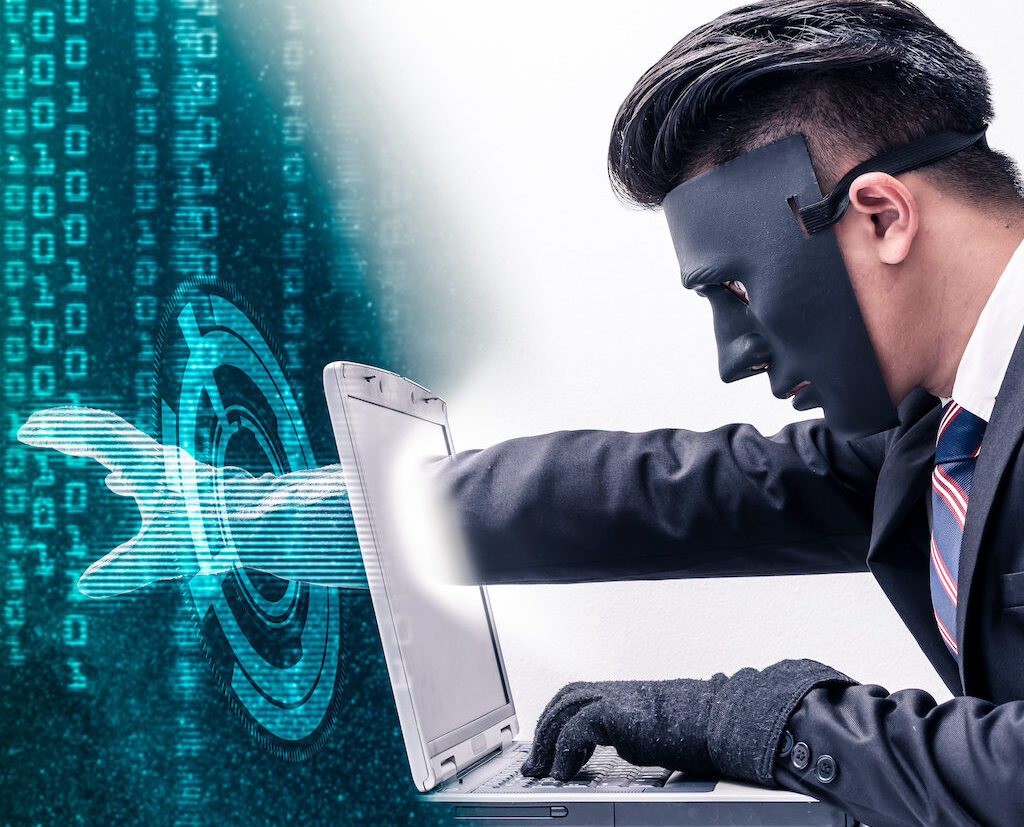October 1, 2014 Links Can Be Misleading. Before Clicking On a Link, Take Another Look. Don’t just click on links that you have received through email or instant messenger. Even if the link text looks like a URL, the link could be going somewhere else. Instead, move your mouse pointer over the link without clicking on it. Look at where the link is going in the status bar. If the link is not going where it should be or is pointing to a file (such as a .exe), don’t click on the link. October 2, 2014 Sensitive Data Can Become Vulnerable When Accessed Through Public Computers. Never Access Workplace Information In These Locations. Whether you are in a café or a hotel’s business center, the computers you use may not be secured properly. The computers in these public centers may be infected with malicious software or could otherwise have serious security vulnerabilities. You may even accidentally leave confidential or sensitive information on the computer after you’re done. Only use your own computer when you need to work away from the office. October 3, 2014 Scams May Be Disguised as Investment Opportunities. Be Skeptical of Any Investment Opportunities You Receive Through Email. If you receive an unsolicited investment opportunity through email, it’s very likely a fraud. These scams often claim to be able to make you large amounts of money in short amounts of time or with a very small initial investment. You should ignore any investment opportunities that you have not inquired directly about. If it seems to be too good to be true, it probably is. October 4, 2014 Pass Phrases Are More Secure Than Traditional Passwords. Use Long Pass Phrases When Securing Sensitive Data. A pass phrase is a long phrase that is used in place of a password, such as “IamGoingtoEataPie!” Pass phrases are easier to remember than traditional passwords and more difficult for a hacker to guess. Use proper capitalization and punctuation in your pass phrase to increase its complexity and make it even more secure. Use a phrase that you’ll find easy to remember and resist the urge to write it down or store it in a computer file. October 5, 2014 Hackers Can Take Control of a Computer and Use It for Their Own Purposes. Keep Your Computer Secured and Learn to Recognize the Signs of Infection. A virus or malicious program may not directly damage your computer but may instead turn it into a zombie. A zombie computer is a computer that a hacker can direct to complete certain tasks, such as attacking another target. Always keep your computer secured with antivirus protection to avoid this and complete a full system scan if you suspect your computer has been compromised. A compromised computer may begin running sluggishly, start crashing or begin performing tasks on its own such as sending out emails through your email account. October 6, 2014 Jailbreaking a Phone Compromises Its Security Features. Never Jailbreak or Root a Phone. Jailbreaking a phone is the act of removing or compromising a phone’s preinstalled operating system so that you gain complete control over the phone’s settings and the applications on it. Jailbreaking can be dangerous because it will turn off many of the security features that are on the phone. When you jailbreak your phone you will no longer be able to get security updates from the phone’s manufacturer. Phones contain a tremendous amount of personal and sensitive information and must be protected at all times. To keep your data safe, you should never jailbreak or root a phone. October 7, 2014 Sticking Out Makes You a Target. When Traveling, Try Your Best to Blend In With the Locals. Thieves, pickpockets and con artists will often try to pick tourists out of a crowd. Avoid any telltale signs that you’re a tourist when you travel abroad, such as bright new sneakers, fanny packs or large cameras slung across your neck. Instead, try your best to dress casually or in the same fashion as the locals. If you are approached by a stranger while traveling, keep your guard up. October 8, 2014 Strangers On Your Computer May Attempt to Access Confidential Files. Never Let a Stranger Use Your Computer. Strangers may attempt to gain access to your computer so that they can access sensitive or confidential documents. They may give you a reason that they need to use your computer, such as a personal favor. Anyone on your computer will have access to the files and systems that you have access to. You should never let a stranger access either your work or home computer. October 9, 2014 Phishing is a Technique By Which a Scam Artist Asks You For Confidential Information. Never Give Personal or Sensitive Information to Someone You Don’t Know. Phishing techniques may vary, but they usually involve attempts to trick you into revealing personal or sensitive information. As an example, a scam artist may pretend to be an employee of your bank and ask you for your confidential bank login information. You should never give anyone sensitive or confidential data through email or instant messaging even if it appears to come from someone you know or a company you do business with. Call your bank directly if you receive a request. October 10, 2014 Online Bullying Can Become Very Serious. Talk to Your Kids About What to Do When Bullied. Many children experience bullying online. Online bullying can be very harmful because it cannot be escaped, even when at home. In order to protect your children from the consequences of bullying, you should talk to them about the actions they can take to take control of the situation. Children should know that there are serious repercussions for bullying and that they should always tell an adult if bullying does occur. Let them know that they can always talk to you about it. October 11, 2014 Hackers May Know Your Router’s Default Settings. Always Change the Username and Password for New Routers Immediately. WiFi routers usually come with default settings for the username and password. Hackers may be able to figure out your password using this default information. Once in your router, a hacker may be able to view your network traffic or even lock you out of your own network. When you get a new WiFi router you should follow the manufacturer’s directions to change both the username and password. Make sure that the password is long, difficult to guess and not related to the network name. October 12, 2014 Gut Feelings Are There for a Reason. If Something Doesn’t Feel Right, Trust Your Instincts. Often, you may pick up on suspicious situations subconsciously before you can consciously recognize them. If you feel troubled by an email, instant message or even phone call, you should trust yourself and investigate further. You may be the target of a scam artist. There is nothing to be lost by checking. October 13, 2014 If Your Credit Card Is Rejected, It May Be a Sign of Identity Theft. Take Action Immediately By Contacting Your Bank. Having your credit card inexplicably rejected isn’t just embarrassing–it can also be a warning sign. If your credit card is rejected you should immediately call the number on the back of the card to talk to your credit card company. Your credit card could have been frozen due to suspected identity theft. Many banks will freeze your credit card if they see you making purchases in an area far away or completing transactions that are otherwise unusual for you. Your card could also potentially be declined because an identity thief has maxed it out. Either way you will want to resolve the situation quickly. October 14, 2014 Public WiFi Connections Are Often Poorly Secured. Protect Yourself By Using SSL Connections. Public WiFi connections may not have appropriate encryption or security. Secure Sockets Layer (SSL) connections are encrypted methods of connecting to the web. Whenever you connect to sensitive data through a website you should be using an SSL connection. You can identify a website that is protected by an SSL connection by looking for “https://” rather than “http://” at the beginning of the URL. An SSL connection will also have a lock icon next to the URL. October 15, 2014 Scammers May Target You Through Social Media Accounts. Don’t Accept Friend or Connection Requests From Individuals You Don’t Know. Con artists and identity thieves may conduct scams through social media accounts. They may befriend you so that they can get enough information about you to steal your identity. They may even try to access your friend list so that they can attempt to scam your family and friends. To protect yourself from this, always make sure that you know someone before adding them to your social media accounts and make sure any sensitive or identifying information about you is hidden from those not on your friend list. October , 2014 Malware and Other Security Threats Can Be Anywhere on the Web. Protect Yourself With a Web Filter. When browsing the web you may stumble upon a website that contains malware or viruses. You can protect yourself by using a web filter. Web filters scan the websites you view to determine whether they are safe. If the website is not safe, the web filter will block the site and will send you an alert to let you know that the site you’re trying to access could be dangerous. Web filters are often integrated into antivirus solutions as a part of a more comprehensive security system. October 17, 2014 Scammers May Keep Contacting You Even After You’ve Rebuked Them. Block Them To Reduce the Possibility of Issues in the Future. Once you have identified someone as a scammer you should block them to prevent them from contacting you again. On most instant messenger services, you can simply right click on the person’s name and then select the “block” option. This will ensure that they cannot contact you or even see you online. You can also block emails by going into your options and adding the person’s email address to your “Blocked Addresses” lists. If you do not block a scammer, they may continue bothering you or sending you potentially harmful files and links. October 18, 2014 Anyone With Access to Your Computer or Mobile Device Could Potentially Infect It With Malware. Never Let Friends or Family Use Your Computer. Friends or family members, especially children, could unintentionally infect your computer or mobile device with malware. When this occurs, all of the data on the computer or device could become compromised. If your computer has access to your workplace information, you should never let anyone else use it. This is true even if you create a guest account or other account for them to use. October 19, 2014 Telemarketers May Be More Than They Seem. Be Wary of Unsolicited Calls, Even About Donations. Some scammers may pose as telemarketers to get more information about you or your organization. They may even pretend to be calling to procure a donation for a charity. Even if the telemarketer claims to be with a company that you know, you should not share any information with them or send them any money directly. If you are interested in donating to a telemarketer’s charity or purchasing something from the telemarketer, get the information you need from the telemarketer and then do your own research on how to best complete the transaction separately. October 20, 2014 Shorter Passwords Can Be Guessed Easily By Hackers. Always Use Long Passwords. Hackers often crack passwords using computer programs that try different passwords until they find the right one. Longer passwords take much longer to guess because they have many more possibilities. A six character alphanumeric password, regardless of what the password is, has approximately 19 billion possible configurations. A seven character password has over a trillion possible configurations. While both of these numbers may sound high, a computer program can crack a six character password in under an hour. October 21, 2014 Malware Sometimes Hides Itself as Anti-Virus Software Solutions. Never Install Software When Sent Unsolicited Alerts. Some malicious programs will disguise themselves as an anti-virus solution. You may be browsing the web and receive a pop-up advertisement that says that your computer is at risk and that you need to install software to clean it. You should never install software that asks you to install it through an unsolicited alert. If you do install this software, it is likely to install malicious programs on your computer. Your current antivirus and malware solution should be able to detect any real risks on your machine and will never ask you to install something to remove them. October 22, 2014 People May Be Listening To You Speak. Don’t Talk About Sensitive Information When In Public. When you’re in public and speaking on your mobile phone anyone could be listening in. Don’t discuss sensitive information such as workplace information or personally identifiable information while you’re in public. Someone could gather enough information from you to either log into one of your accounts or even steal your identity. Instead, excuse yourself from the conversation until you’re in private. October 23, 2014 If You Think You’re Being Followed, You May Be In Danger. Find Help Immediately. Criminals may follow a prospective victim for quite some time before they strike. If you feel as though you’re being followed, you should enter into the first open public establishment that you pass. If it is dark, stay as close to the light as possible until you enter. Tell an employee, manager or owner within the establishment that you are being followed and ask them to call the local authorities. The police can then determine whether the person following you was a threat. Do not leave until you are certain that you are safe. October 24, 2014 Your Voicemail Could Contain Sensitive Data. Always Protect Your Voicemail With a Password. Personal and work voicemail accounts may contain sensitive or confidential information. Someone trying to gather information about you or about your workplace may know enough to attempt to log into your voicemail account. Secure your voicemail with a password and delete old voicemails that you no longer need to reduce risk. October 25, 2014 Identity Thieves Often Use Phishing Techniques. Protect Yourself By Keeping Your Personal Information to Yourself. Phishers will often attempt to gain information from you under false pretenses so that they can steal your identity. As an example, they might claim to be from your ISP and ask you for your PIN or your mother’s maiden name to verify your account. If you respond, they will then have some of the information they need to get into your accounts. Protect yourself by never giving out personally identifiable information over the phone, through email or through instant messenger. October 26, 2014 Any Child Can Become a Bully. Speak To Your Child If You Suspect They Are Bullying Others. Children don’t always understand the consequences of their actions or how they may affect others. If you suspect that your child is bullying another child you should speak with them immediately. Explain to them how bullying can affect other people and the consequences bullying may ultimately have for both them and the others involved. Make sure that your child understands how serious bullying is and that it needs to stop. October 27, 2014 Home Wireless Networks Are Vulnerable When Not Properly Secured. Require a Password and Encrypt Your Connection to Remain Safe. Intruders who break into your wireless network could potentially gain access to your personal and confidential documents or to work documents that you have accessed from home. To reduce the possibility of risk, you should require a login and password to connect to your network and you should ensure that it is encrypted. Use WPA rather than WEP; WEP is an old type of security that is not very effective. If your wireless router only offers WEP security, it may be time to upgrade. October 28, 2014 Identity Theft Can Occur Anywhere. Pay With Cash When Your Suspicions Are Aroused. When you travel, simply using your credit card could potentially expose you to the risk of identity theft. If you begin to feel wary about using your credit card, you should trust your instincts. Pay cash rather than handing over your credit card. Your gut knows best. If you distrust the situation entirely, make sure that you do not reveal how much cash you have, as this could also make you a target. October 29, 2014 Revealing Any Personal Information Can Be Dangerous. Don’t Include Sensitive Information In Your Usernames. Including sensitive information in your social media and other online account usernames could inadvertently lead to identity theft. Do not put information such as your age in your username; an identity thief could use this information to derive your date of birth. Similarly, don’t reveal to the public maiden names, locations of birth or current addresses. October 30, 2014 The Web Can Be a Dangerous Place. Turn Your Security Settings Up On Your Browser for Additional Protection. There are many malicious applications and security vulnerabilities you could be exposed to online through your web browser. Most browsers, such as Internet Explorer or Chrome, have a selection of security settings ranging from lowest to highest. To give yourself additional protection against malicious attacks, choose higher levels of security settings. These security settings will block certain types of scripts from running and reduce the permissions settings of the websites.
October 31, 2014 Your Instant Messages Are Not Private When You’re At Work. Don’t Say Anything You Wouldn’t Want Your Employer Seeing. While at work, your email and instant message conversations are part of your workplace’s data. You should never introduce anything into this professional data that you would not want your boss or colleagues to see. Always remain professional while you are at work and while you are talking to your colleagues.








